I'm in the process of preparing for open heart surgery. It's an elaborate procedure where I'll get a new mechanical heart valve and also replace about 6-7 centimeters of the aorta. This is followed by sick leave and rehabilitation with, among other things, breathing techniques to make sure my lung capacity is restored. It takes about three months for my rib cage to just heal up. Although I've been aware of my congenital heart defect for a long time, the news of needing an imminent operation came quite suddenly and surprisingly. So how did I end up here?
I've always been a slow walker. Meaning my ordinary pace keeps me many steps behind my company. When people much shorter than me walk at regular speed, I experience almost having to run next to them to keep up. This of course doesn't have to be related to my heart, but provides a clue to what I tend to think is normal for my body.
As I've aged, and become heavier and more sedentary, I'd argue it's not strange at all for me to dismiss my shortness of breath as just me being out of shape. I've always walked slowly. Having grown up in Liberia and Tanzania, I even decided on a label for my slowness: "The African Way". I mock those moving faster than me, saying they don't need to rush through life. Stop and smell the roses, people.
What I have a hard time owning up to is the real, physical challenge I feel when moving faster. I don't really have better words for it than that. As if my whole body is working against any attempt to accelerate. The times I've tried starting a routine of jogging I find it really uncomfortable and painful. That's when the fitness fanatics explain that you have to "run through the pain" in order to "emerge on the other side".
I'm not sure it's that easy.
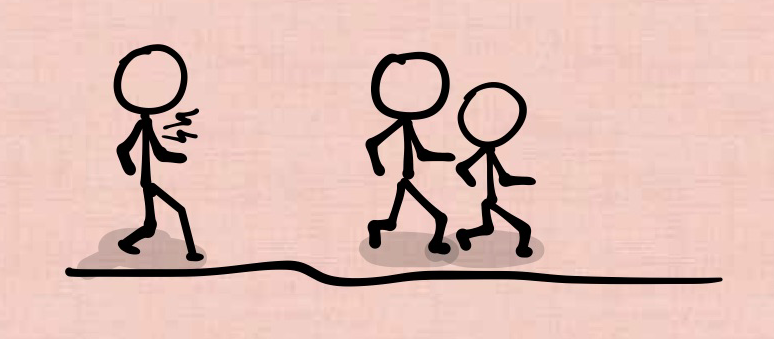
Heart like an elite athlete
In 1992 I was conscripted for basic military training, as all boys in Sweden were back then. And as an 18-year old I was quite strong at the time. I remember doing push-ups every day for several months before the physical test. I smiled when someone mentioned that I got a great score in strength, although I suspected that my lack of endurance might bring the overall score down.
That same day a doctor identified a murmur when listening to my heart. "It doesn't have to mean anything at all," he said. But it did. And I got a leave certificate from military service.
I don't remember all the back-and-forth back then, but I know that I did some exams at Varberg hospital (on the west coast), maybe also Sahlgrenska hospital (in Gothenburg), probably also met a doctor in Falkenberg (lower down on the west coast) where I was at the time staying with my mother. But then I suppressed all thoughts about my heart as I moved to Jönköping (middle of the southern part of Sweden) shortly after, to study communication science.
What I didn't really know at the time was how different the medical record systems are between different regions in Sweden, how the areas of responsibility have geographical boundaries and how easily you get lost by the system if you keep moving around in this quite elongated country.
I picked up on two pieces of information that I carried with me about my heart for many years:
- Aortic insufficiency (also known as aortic regurgitation). This means that my heart is not working optimally and blood flow is affected. Blood is pumped back and forth between the aorta and the left ventricle which also means that the heart muscle grows in size to compensate. This sounded a bit scary, which I think turned out to be good reason for me as a young man to avoid any thoughts of this as much as possible.
- "There are elite athletes with this defect". I don't even know if this is true, what relevance it has in my specific case, and I don't really remember in what context someone said this. Maybe it was just a doctor who commented on the heart murmur. In any case, I chose to hang on to this particular statement to subdue my worries. If elite athletes have this defect, it can't really be dangerous at all, is what I chose to think.
And so the years passed.
"You have a prominent heart murmur"
I think it was only after I got married (26 years ago), and living in Stockholm, that I really started to take the whole heart dilemma seriously again. And of course it wasn't my idea but my wife's. I do think one of the nicest things we can help our partners and friends with is an encouragement to go to the doctor when they hesitate. Too many of us ponder for too long, don't want to be a burden, or dismiss it as too much of a hassle.
Of course, my mother reminded me regularly too. You may recognise, though, how poorly many young people in their twenties heed parental advice.
Here is also when a somewhat farcical period begins with me contacting the local health clinic to get a referral to a heart specialist. This is the first time I realised how little is shared between regions, because they of course had no way to access any documentation about my heart defect. And hence could not refer me. So I had to start by booking a visit with the doctor at the health clinic. He listened carefully to my chest, and back, and explained to me:
"You have a prominent heart murmur."
No shit, Sherlock, I think to myself. Then I get a referral to a hospital where an ultrasound is performed that (again) establishes I have a heart defect. It's not yet serious enough to warrant surgery, but since that may be needed in the future I should do a checkup every 2-3 years.
And again I think: now they know I have a heart defect, so I'm in the system and should get a regular invitation in line with the regularity of checkups they just recommended to me.
But then another three years pass by and my wife asks me "when was the last time you checked your heart?". And I'm not kidding when I say I then have to redo the same procedure again with a cold stethoscope against my chest, because the staff is new and no one wants to write a referral for a heart exam without listening to my heart. Of course, it was probably another year before I had the energy to redo this:
"You have a prominent heart murmur."
Hey, really?
It's not my intent to be cruel here, but from a patient perspective it is truly frustrating when my heart defect has been diagnosed twenty years earlier and I am still forced into an obstacle course to get the examinations that have been recommended to me by the medical professionals themselves. I think I visit the health clinic three times like this, on my own initiative, before I end up at a private heart specialist where I eventually - through a routine process - receive an invite every three years.
It is also at this private clinic that I learn the name of my actual condition: bicuspid aortic valve. Normally, the aortic valve has three leaflets (tricuspid), while I have two leaflets (bicuspid). Because the blood does not flow unimpeded, there is increased wear and tear and the valves can become really stiff and no longer open adequately for the blood, and yes: need to be replaced.
The shortness of breath
It's towards the end of the pandemic, the spring of 2022, that we are out walking the dog and along a gently sloping ridge I suddenly feel a huge shortness of breath and a strong feeling of discomfort, maybe a little pain, in my chest. This continues for a week or so as soon as I make the slightest effort. But the shortness of breath goes away pretty soon after I stop exerting myself so I don't take it as seriously as I probably should. A conclusion which, I have realised, is often related to: "I don't have time".
Well, I actually do contact my nearby health clinic (yet another new one after moving again) at some stage via their chat. They offer me an appointment in three months time. I let it go. I can walk a little slower when necessary. I mean, it's still part of my identity.
"Ah, you probably had Covid," someone says much later when I tell them about it. Yes, it was almost along those lines I was thinking too. It's as if I forget that I have a heart defect, now that it's being checked regularly and they haven't said anything about major changes.
And while we're on the subject of Covid, I've been thinking about why I never received any notification that I would be in a risk group... although with what I know now, I can assume that would have been a good idea.
In retrospect, I have thought back and noticed how I definitely have experienced increased shortness of breath on slopes and stairs in recent years. Something that can easily be dismissed as not exercising enough, being almost fifty years old and having gained a number of kilos around the waist. Not strange at all. Right? I should start weightlifting again... why is it so hard for me to make that a priority?
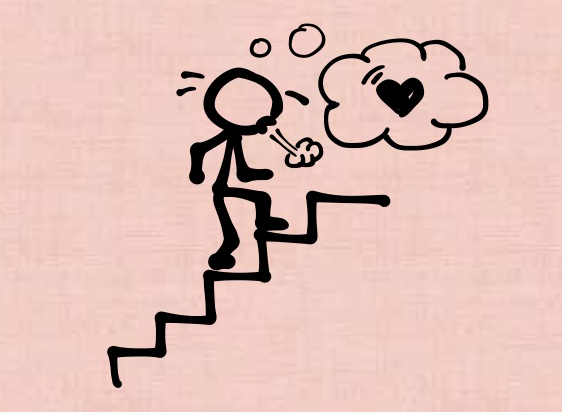
Unconscious awareness
In the spring of 2024, three years have passed since my last ultrasound. There was certainly some form of awareness inside me at during this time, though I had not articulated it. Didn't want to face it. Before the invite comes from the clinic, I reach out to them and ask if I will be called to a checkup soon. My subconscious wanted one. They confirm, and two weeks later I get the invite.
The ultrasound on May 10 proceeds as it usually does. Though each time it feels like the exam takes just a little bit longer. It's not completely painless, as the sensor is often pressed against the same place for long periods of time. The difference this time is that a doctor comes in and wants a complementary image, from a different angle. Which, of course, makes me think, "wait, what did you see this time?"
The return visit and meeting with my regular doctor is on June 3rd. Exactly seven days before my 50th birthday.
Before this meeting, my intention was in fact to ask a little more specifically about when it might be time to operate on my heart and what that would mean. But I did not expect that he himself would immediately start out with how the valves have become stiff and the aorta is dilated and it's now recommended to get a new valve in place. This felt like a significant change in just three years.
"I see. How soon would this be. In a year or so?"
"Oh, no. More like three months."
Welcome to the age of 50.
A parade of exams
Of course, it's not easy as just deciding you want an operation. It's a procession of blood tests and examinations to determine risks and suitability. After yet another ultrasound, plus a CT-scan, I am presented as a case at the regular thoracic conference call on June 27. I'm accepted for open surgery within the regular queue system. My new doctor contact informs me that this usually means about eight weeks, but I do not yet have a date. I now think it will be longer. [Reality check: it turned out to be seven and a half weeks]
The other day I also had a comprehensive x-ray examination of my teeth. I must admit I didn't have an understanding of how important oral hygiene is for the heart's function. I also need at least one more CT scan before surgery. You could say I'm definitely "in the system" now.
It wasn't until I sat with my new doctor contact and he told me about the recommended surgery that I really began to understand the seriousness of the procedure. He wanted me to understand for sure how much will be required in terms of rehabilitation. So he did the classic Superman move where you "tear apart" your shirt to reveal a superhero costume. But what he also said at the same time was that "everything is opened up here". Yes, he meant a little deeper than just the t-shirt.
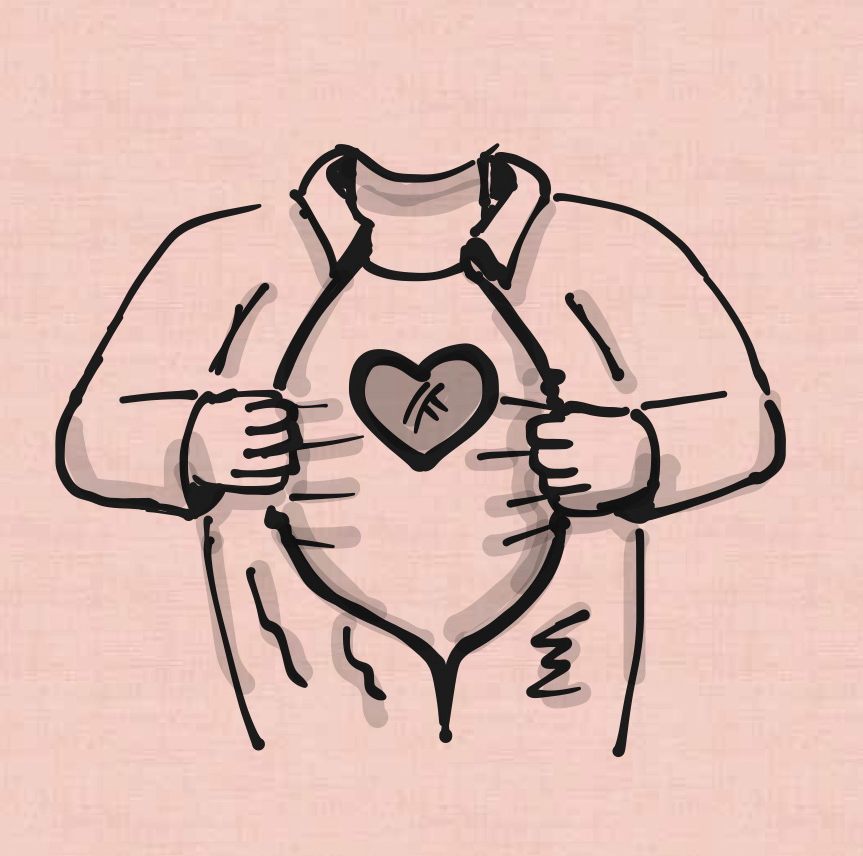
There will be some healing, learning to breathe and a need for everyday exercise. In this case it's likely true that I have to get through the pain to the other side. If recovery goes well, I might be able to take some work meetings digitally after a month or so. But in this situation, there are no guarantees as to how quickly this can happen.
The irk of being self-employed
This is probably one of the few times I've experienced that being self-employed adds to the hassle. There is a lot that needs to be fixed now with promised work that I will not be able to carry out on agreed times, and ensuring that long-term contracts will hold for the inevitable interruption. There is no one who can easily step into my place, I have no HR department to contact and I now have to start digging into how everything works with the social insurance agency and what they need from me.
My summer won't be as relaxed as I had hoped. I have to, for example, contact industry colleagues and ask for help in carrying out the course in Ethics in design that I so love to lead every year at Nackademin, a vocational school for higher education. As the date for surgery has not been set, the worst case scenario is that I'm absent during all teaching weeks.
Rest is difficult when you feel a strong sense of responsibility. Made easier with lots of support from family and friends. ❤️
Focus on the positive
In all the worry and confusion, it's important to remember why this news is still really good.
- I live in a time and live in a country where I can have an operation like this without ruining myself. Absolutely fantastic.
- My heart defect has, despite a few setbacks along the way, been known and has been examined with some regularity. Many people with similar heart defects do not discover this until the problems are more troublesome and the situation more acute.
- I am relatively young for an operation like this, which provides good conditions for being able to recover in a good way as well.
- I get a mechanical heart valve that will last a lifetime. The trade-off is that I have to take blood thinners for the rest of my life, but there are many others who do and cope just fine.
- After a certain time I should be able to feel better in many ways. With the mechanical valve, my heart will work in a way that it never did before.
Who knows, maybe I'll be able to walk a little faster in the end.
Updates from me
I have always processed life events through writing. Since I started blogging regularly more than 25 years ago I know several of my personal posts have helped others, and have given me a tremendous amount of value back in the form of personal stories from readers.
So I will continue to write about this. But of course interspersed with everything going on in the digital world. Don't be surprised if there is also a post with a more technical perspective related to heart disease, as soon I'll have my own personal mechanics as a core part of my body. A surreal thought.
Comments
August 4. Jason Mesut:
Dear Per. I appreciate you. And appreciate you sharing all this. How frustrating it must be for you to have had these experiences and to deal with the work situations.
Wishing you the very best return to life and work post-op.
Per's reply: Thank you Jason! 🫶 The frustration is real but so is the gratitude for all the people around me showing their support and sending well-wishes, not to mention the people doing the work on my body. 😊
August 4. Frank Meeuwsen:
The best of luck for you the coming months! Like you said, it is fantastic to live in a day and age where bodily bugfixes (😉) like these can be fixed by professionals.
Per's reply: Thank you Frank! 🫶 The human body is a fascinating thing. I can really recommend the book Kluge by Gary Marcus (the same Gary Marcus who is a critic of generative AI today). There are a lot of clumsy solutions that make up our bodies and brains.


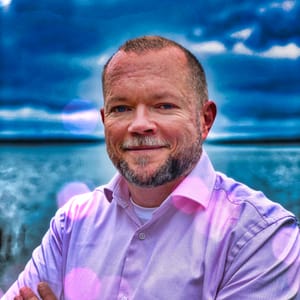

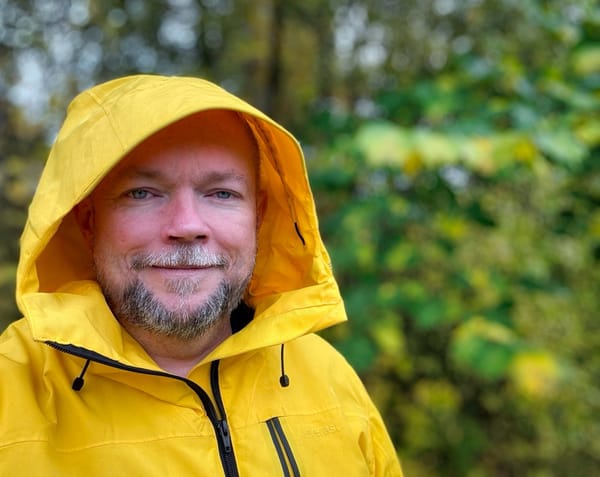
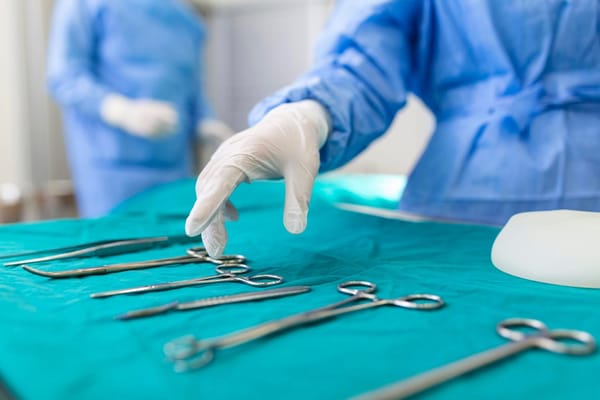
Member discussion